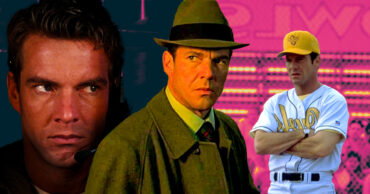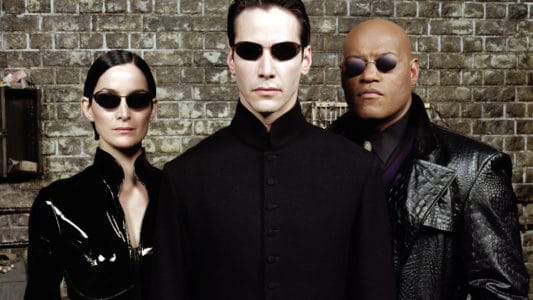
In an industry as blatantly commercial as film, it’s inevitable that proven, marketable ideas will get recycled to turn an easy profit. After all, movies are expensive to make and studios — particularly ones coming off a string of ill-considered duds — are understandably eager to cash in on existing franchises that have already proven popular with general audiences. They’re called “tentpoles” for a reason: the profits generated by money-making crowd pleasers prop up everything the studio produces, from high-profile blockbusters to increasingly modest fair.
Whenever this or that movie becomes slated to be remade (or rebooted, or re-imagined, or whatever the preferred nomenclature is these days), the reaction is invariably swift and unforgiving. “Hollywood is out of ideas.” “Where are all the original movies?” “I already saw that one.” “Why should I pay to see that movie again?” Never mind that most of these disparaging movie-goers will shell out their hard-earned money to see the “new” movie, same as the rest of us.
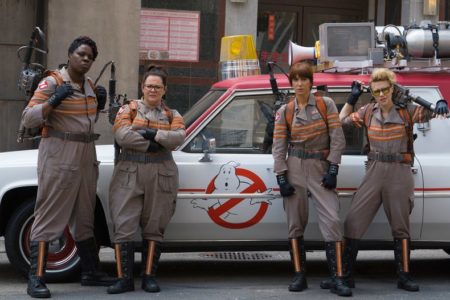
Although it is admittedly tempting to join the fray, I’ve always tried to hold off from dogpiling on Hollywood’s supposed lack of creativity. Although certainly not ideal, remakes can provide a new wellspring of creativity that simply wouldn’t earn a multimillion dollar studio budget otherwise.
I mean, who really cared about a shlocky, sci-fi monster movie starring Vincent Price until David Cronenberg remade it as The Fly? Who remembered the black-and-white, flying saucer flick The Thing from Another World until John Carpenter remade it as The Thing? How many people outside of Hong Kong had even seen Infernal Affairs before Martin Scorsese won an Oscar for The Departed?
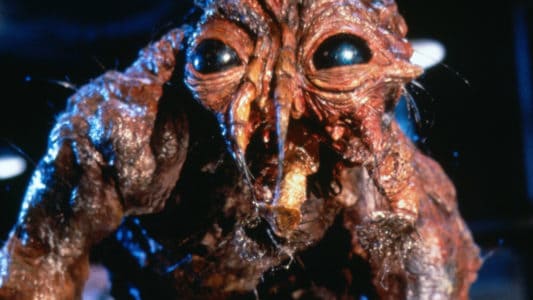
The Magnificent Seven, Cape Fear, True Grit, Scarface, Ocean’s Eleven, A Fistful of Dollars: all beloved remakes that either drew attention to or improved on the originals. And sure, for every Man Who Knew Too Much and Girl with the Dragon Tattoo we get a listless trickle of Fant4stics and Psychos, but it’s a tradeoff that I’m all too happy to make. The originals will always be there to pop in the BluRay player when I want to revisit them and I’ll sometimes get a reimagined classic out of the exchange.
That’s why I’m not that outraged that Warner Bros. just announced that they’re going to remake The Matrix. Just to be clear, this is not a good idea on its surface. In the eighteen years since the original movie hit theaters, we’ve gotten two theatrically released sequels and a Frankensteined together anthology film: collectively ranging from bad to forgettable. The original doesn’t feel outdated by any means and the rise of anime in the popular consciousness — not the mention the upcoming Scarlett Johansson movie — will only highlight its plagiaristic similarities to Ghost in the Shell.
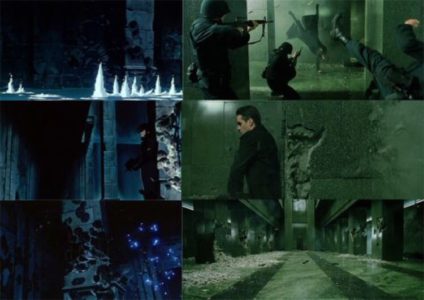
Yes, there are better things that Warner Bros. can throw $100 million dollars at. Yes, The Matrix doesn’t need to be remade. But on the other hand, there’s a lot of interesting ground to cover with the franchise and remaking the movie with those avenues in mind may still give us something worthwhile.
Did you know that the character Switch was originally supposed to be played by two different people? While in the Matrix, Switch was going to be a woman, but in the “real world” he would have been a man. Get it? Switch?
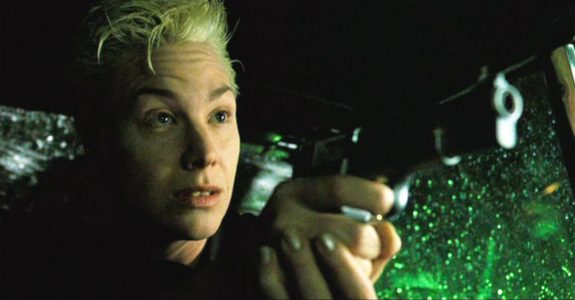
While the Wachowskis eventually went in a different direction with the character, the idea is fascinating: a person’s Residual Self Image — what Morpheus described as “the mental projection of your digital self” — being different from what biology dictated for you from birth. The movie already had a lot to say about the nature of identity and conformity. If Switch — or even Neo — expressed transgenderedness through a visual transformation between the “real world” and the Matrix, it would take those ruminations in a far more interesting and far timelier direction.
How would that character behave differently between the “real world” and the Matrix? Would they be treated differently? How would they react to looking in a mirror for the first time after getting unplugged? How would this affect how they saw themselves in day-to-day life? Would they embrace their new (or dual) identity? Or would they reject it and want to be re-inserted into the Matrix like Cypher?
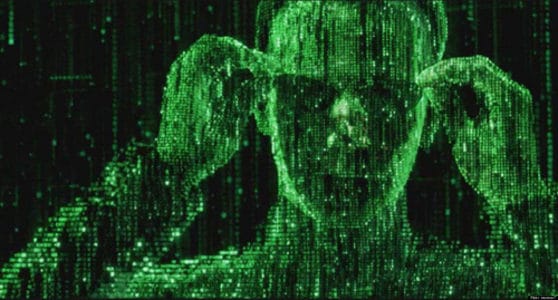
So yes, the action in The Matrix holds up as well as it ever did. The plot is fine as-is. But there’s a lot of different facets to this franchise that have yet to be explored. And freed from the mess made by the sequels, a remake can take the time to explore these contemporaneous ideas of identity that the Washowskis — transgendered women in their own right — opted to drop from the original film.
And that’s something that I would love to see.
 Follow Us
Follow Us

